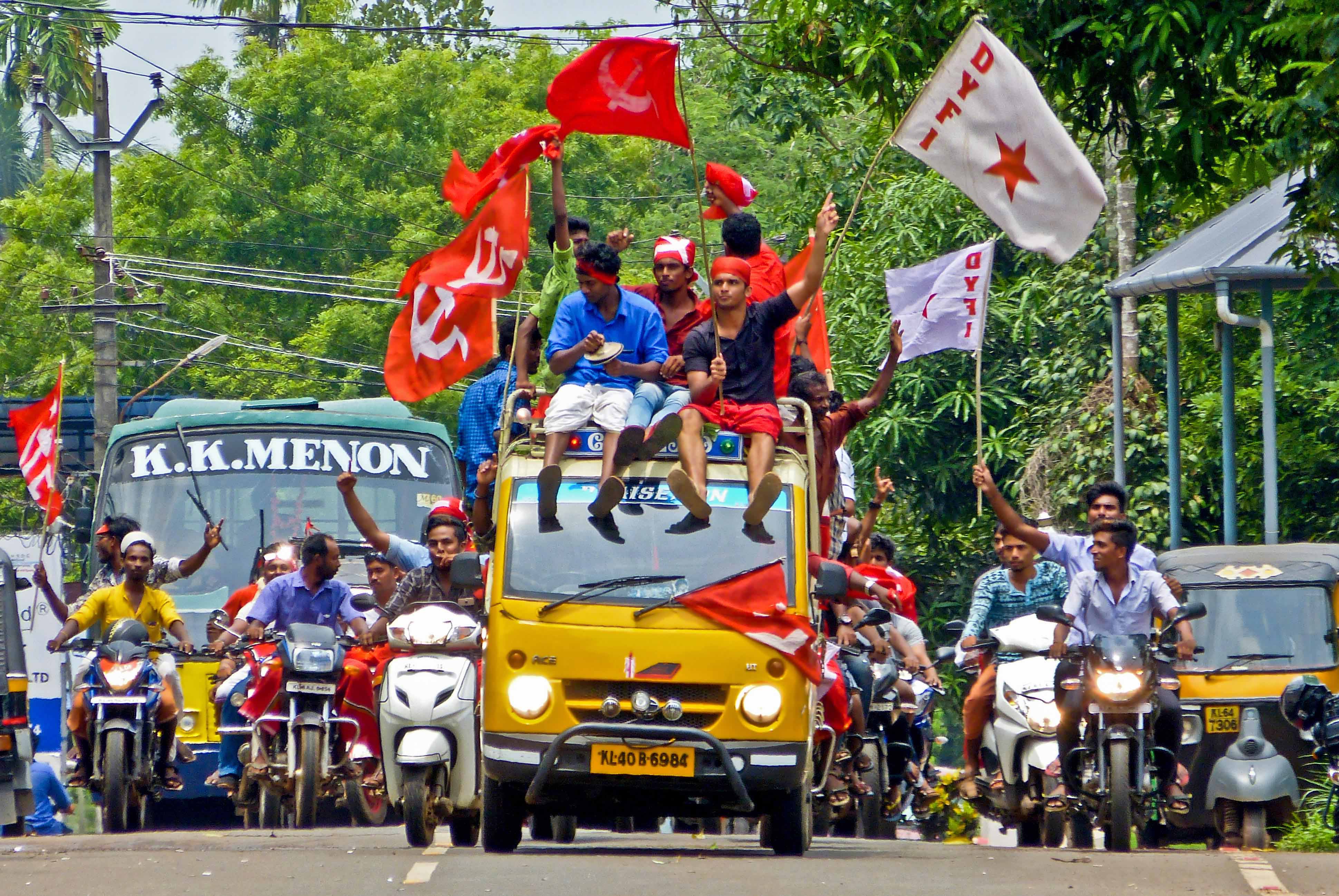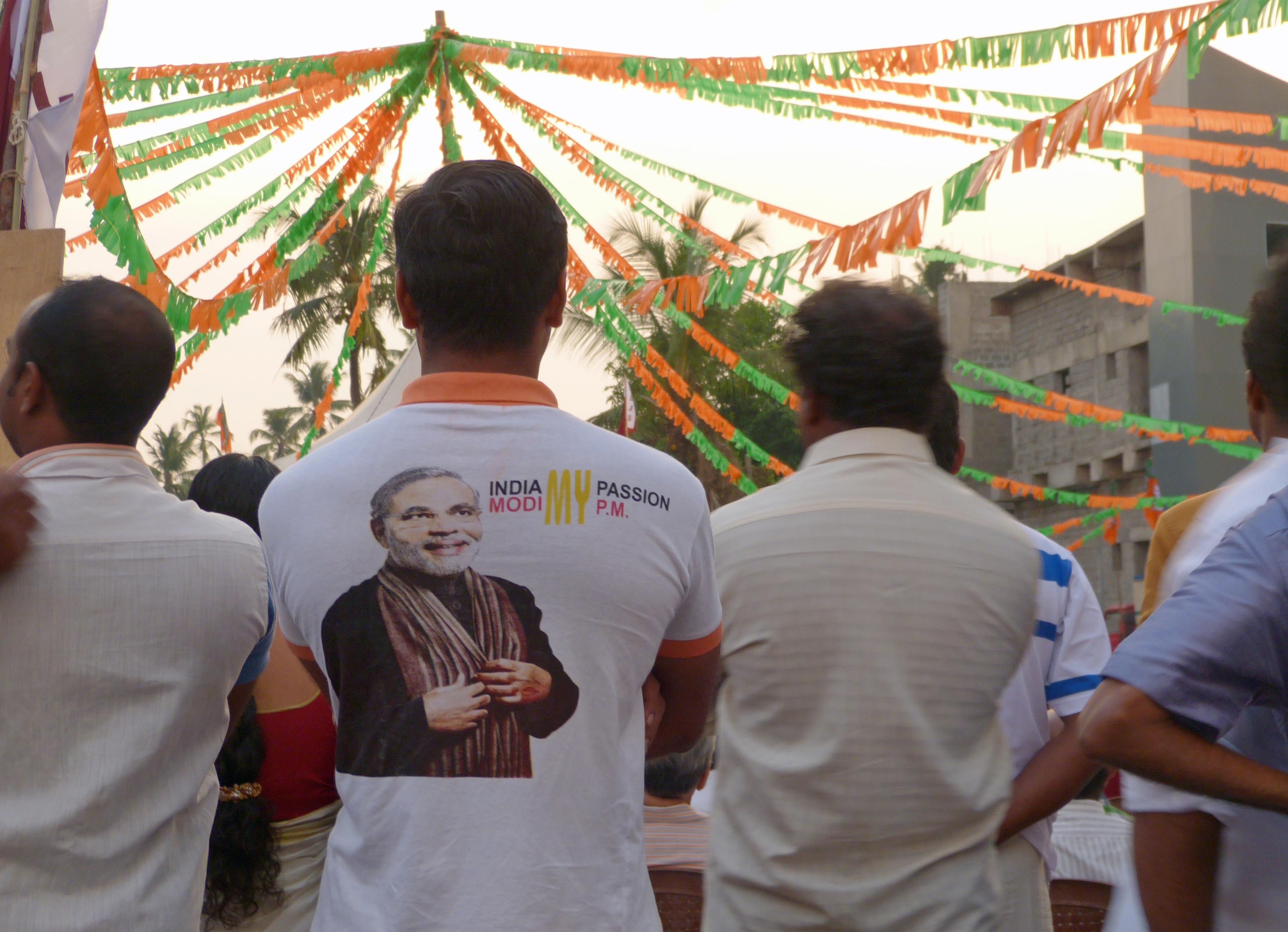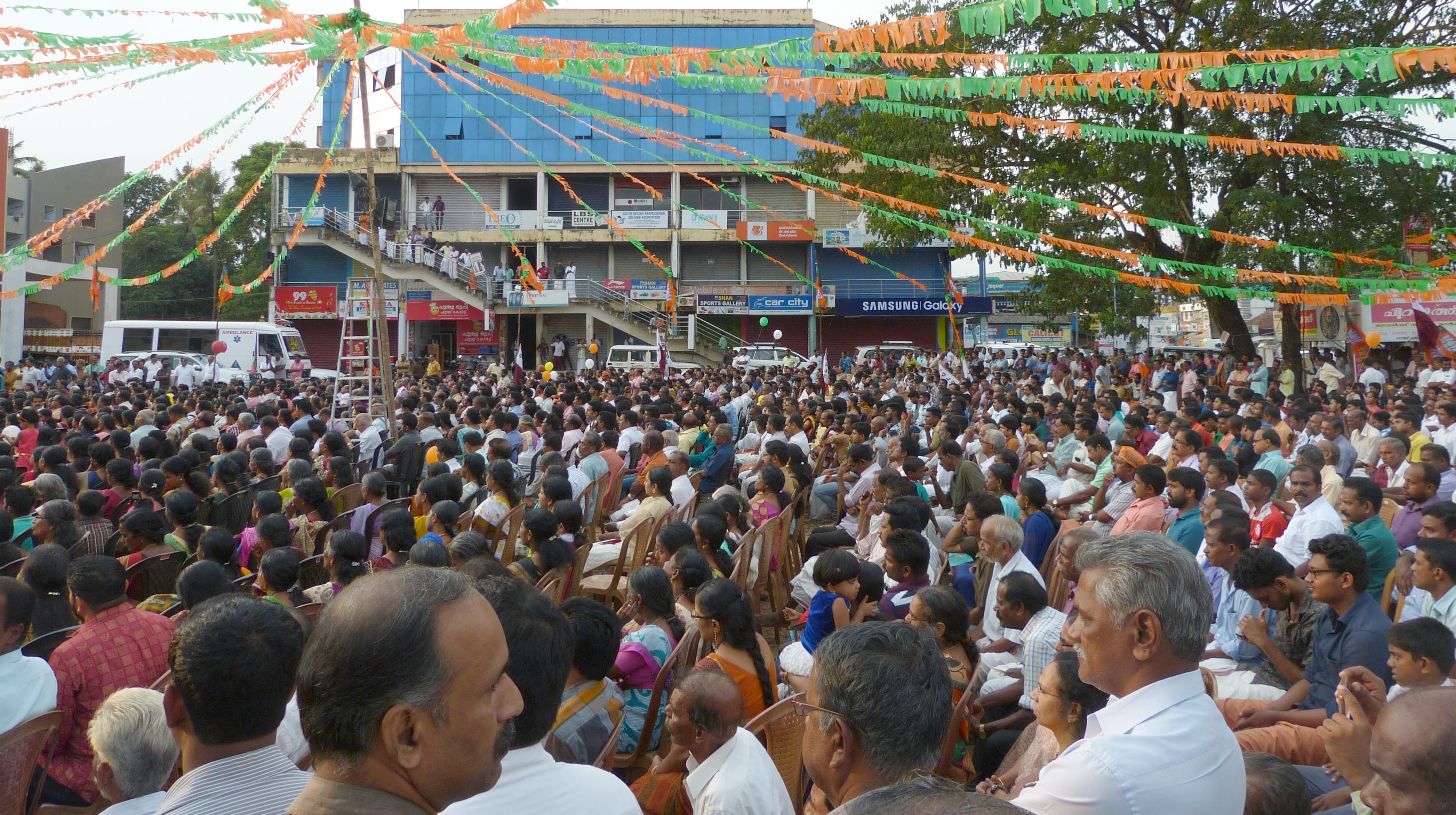As Kerala gears towards Assembly Elections 2021, J Prabhash offers a critique of the strategies adopted by the major political fronts in the race to power, and the changing dynamics of Kerala’s electoral politics.
Dr J. Prabhash

Of recent, democracy has become a great spectacle, and the politics that fuels it performative. People and their rights hardly count today as the ruling classes have hijacked democracy. What the great Turkish novelist, Ahmet Altan, said about politics is true of contemporary democracies too. Altan was unsparing in his criticism of modern politics when he commented that “[A]nyone who enters politics has a bit of Sultan in [him]…Whatever you do, whatever you call your form of government, you end up with a sultan at the top” (Love in the Days of Rebellion, 250-51). Whether it is in India, Turkey, Russia, the USA (during Donald Trump’s presidency, for example) or elsewhere, people live under such democratically elected ‘Sultans’.
Naturally, in such a system, elections are reduced to mere rituals. The Hegelian philosopher, Slavoj Žižek, has beautifully rendered this dilemma of democracy thus: “Elections are rituals that occur every 4[/5] years and their main function is to passivize voters in the long period between elections.” By implication, this means that election is more a battle of interests than a debate about a future vision of society. The 2021 assembly election in Kerala has to be situated against this background.
Unlike earlier periods, this time around, the election is crucial for all three Fronts: LDF, UDF and NDA. While for the former, it’s an opportunity to ensure its continuance in office for another term— unparalleled in the history of the state for a left government to anticipate—for the latter, it’s a means for establishing a meaningful presence in the Assembly. As for the UDF, the election is a chance to wrest back the power it has lost in 2016, thus re-affirming the usual practice in Kerala, viz. changing the ruling party/front during every subsequent election. Viewed thus, the LDF and NDA try to make history by changing it, while UDF tries to reclaim history by ensuring its continuity. This time there is also another actor in the race, Twenty 20, which is contesting few seats in the Ernakulam district.

Interestingly, all three principal political foes have one crucial feature in common—highly centralised leadership. Whatever the party leadership contends to the opposite, in the CPM, which leads the LDF, all powers are concentrated in the person of Pinarayi Vijayan, the Chief Minister. The party proposes and Pinarayi Vijayan disposes. However, for the BJP, which leads the NDA, and the Congress, which leads the UDF, the centre of gravity of power is located outside the state—in New Delhi. While the fountainhead of the BJP’s power is the Narendra Modi-Amit Shah duo, for the Congress the show is managed by the Nehru family, euphemistically called the High Command. In this sense, therefore, the race for power in Kerala in this election is mainly between three ‘Sultanates’.
And the issue at stake is nothing but power. As Michael Lind has stated in his recent work, The New Class War, ‘the issue is not the issue,’ meaning that the real conflict is not over any particular matter. ‘The issue is power.’ The Left is becoming less and less ‘left,’ and the Right is becoming more and more ‘right.’ In Kerala politics today, ideology is like harvested wheat, scattered by the whirlwind of power. When ideology is absent, politics looks the same all around. This is exactly what Kerala politics is today–politics at its worst.
The best proof of this comes from the nature of the alliances of the three Fronts and the extra mile each party is prepared to travel to welcome any opportunistic leader/cadre who switches sides from other parties to its fold. None of the parties, including CPM, Congress, and BJP finds anything wrong in this, and is even prepared to offer such deserters party tickets to contest elections. This is also true of luring into one’s fold each other’s coalition partners. Look at the ease with which KC(M) is inducted into the LDF fold, NCP into the UDF fold and the Janadhipatya Rashtriya Sabha, led by C. K. Janu, into the NDA camp. Also, recall the statement made by the BJP State President K. Surendan that the party would form government if it obtained anything between 30 to 40 seats in the Assembly! The message is loud and clear—BJP would poach the rest of the MLAs necessary for forming the government from other parties as is its wont everywhere. Ultimately, this means that each party is in for a DNA change. Needless to say, this naturally has a telling impact on their ideology as well. There is a disconnect between the parties and what they stand for, ideologically. Their ideology has been confiscated.

Differences on the question of communalism apart, ideological and programmatic differences between parties are thinning down. While it’s true that the Left is still critical of BJP’s hindutva politics, in economic policies a climb down from its earlier position is manifest, especially under the present ruling dispensation. So too is its tendency to compromise with caste and religious leaderships. With regard to the Congress, not only has it a pronounced rightist tilt in economic policies, but on all major issues of communalism—for instance, Ram Janmabhoomi controversy—it often acts as the ‘B’ team of the BJP. In the case of BJP what it offers is only a matter of conjecture: rightist economic policies combined with hindutva—a variant of majoritarianism.
All these issues show that Kerala politics has entered the post-truth era without much fanfare. It’s also becoming post-ideological and post-political. This is the biggest political obstacle to the revival of socio-economic emancipation.
References
- Altan, Ahmet. Love in the Days of Rebellion. Europa Editions (UK), 2020.
- Lind, Michael. The New Class War: Saving Democracy from the New Managerial Elite. Atlantic Books, 2020.
About the Author: Dr J. Prabhash is former Pro-Vice-Chancellor, University of Kerala. He also served as Director-General of Kerala State Institute of Parliamentary Affairs and Head of Department of Political Science, University of Kerala. He is a visiting fellow at the University of New South Wales, Australia. He can be contacted at drjprabash@gmail.com.

One comment